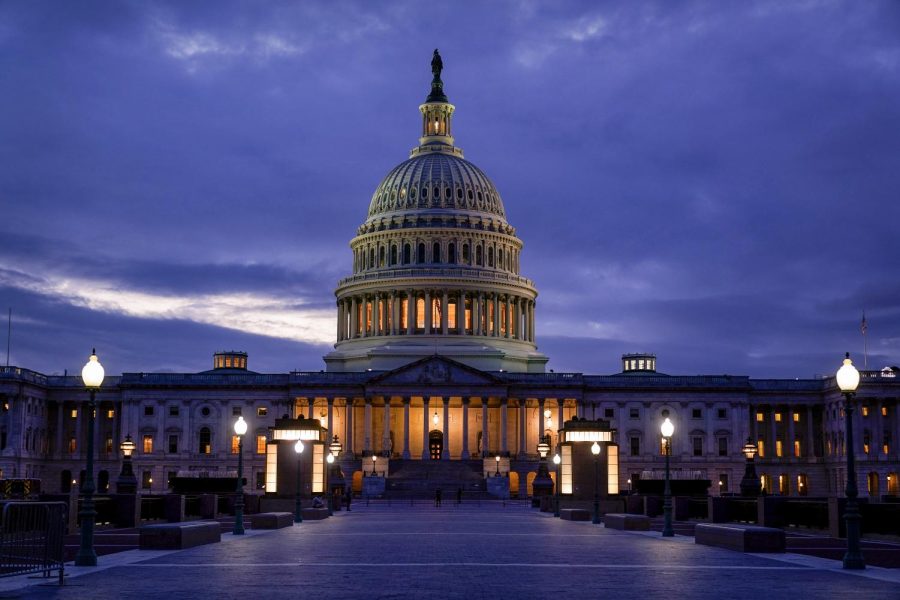Deal reached to raise U.S. debt ceiling
(AP Photo/J. Scott Applewhite)
The light in the cupola of the Capitol Dome is illuminated, indicating that work continues in Congress, in Washington, Wednesday, Oct. 6, 2021. Senate Republican leader Mitch McConnell has given Democrats a new offer to extend the federal debt ceiling through an emergency short-term extension.
Oct 14, 2021
On Sept. 28, Janet Yellen, Secretary of the Treasury, predicted that the government would run out of money by mid-October if Congress did not do anything to raise the debt limit, according to CNN. Congress is notorious for raising the debt ceiling just before the deadline hits. Since previous reporting, the situation has changed.
Sen. Mitch McConnell, Republican minority leader from Kentucky, presented an offer to the Democrats which would increase the debt ceiling until December. When Congress has to vote again in December, it will be at about the same time that the Democrats will also attempt to pass a massive tax and spending package, according to Bloomberg.com. December is also when Congress will have to fund the government for 2022 as part of the annual fiscal-year spending. A fiscal-year is a period of time that businesses and programs use for budgeting and reporting. This is different from the debt ceiling in that the debt ceiling is the limit on how much money the government can borrow. If the government cannot borrow any more money, then the businesses and programs will not have a sufficient budgeting amount.
Political Science major Mallory Dunlap ‘25 says “I think it’s a good thing to raise the debt ceiling, I feel like if the country were to default it would be really bad for not only the economy but also for the people who live here as well.”
Students believe that the debt ceiling should be raised in order to avoid total chaos. On Oct. 8, the Senate voted to raise the debt ceiling until Dec. 3, which is also the day that funding for federal programs and agencies will expire. Funding expiring means that the federal programs and agencies will no longer be receiving benefits. This ties into hitting the debt ceiling, because if the government runs out of money, these programs will not receive the funding that they need to continue. This move is short-term and will manage to pull the government out of despair, but there will be a vigorous fight between the Democrats and the Republicans as Dec. 3 approaches.
The Washington Post says that the government increased the borrowing limit to be about $480 billion. At first, Republicans opposed this deal. However, after many days of negotiation, the Congress managed to gather the 10 votes needed to pass this legislation. For now, the debt ceiling increase will prevent the government from “running out of money” as it was previously predicted for Oct. 18. The fight to raise the debt limit in December will certainly continue.












